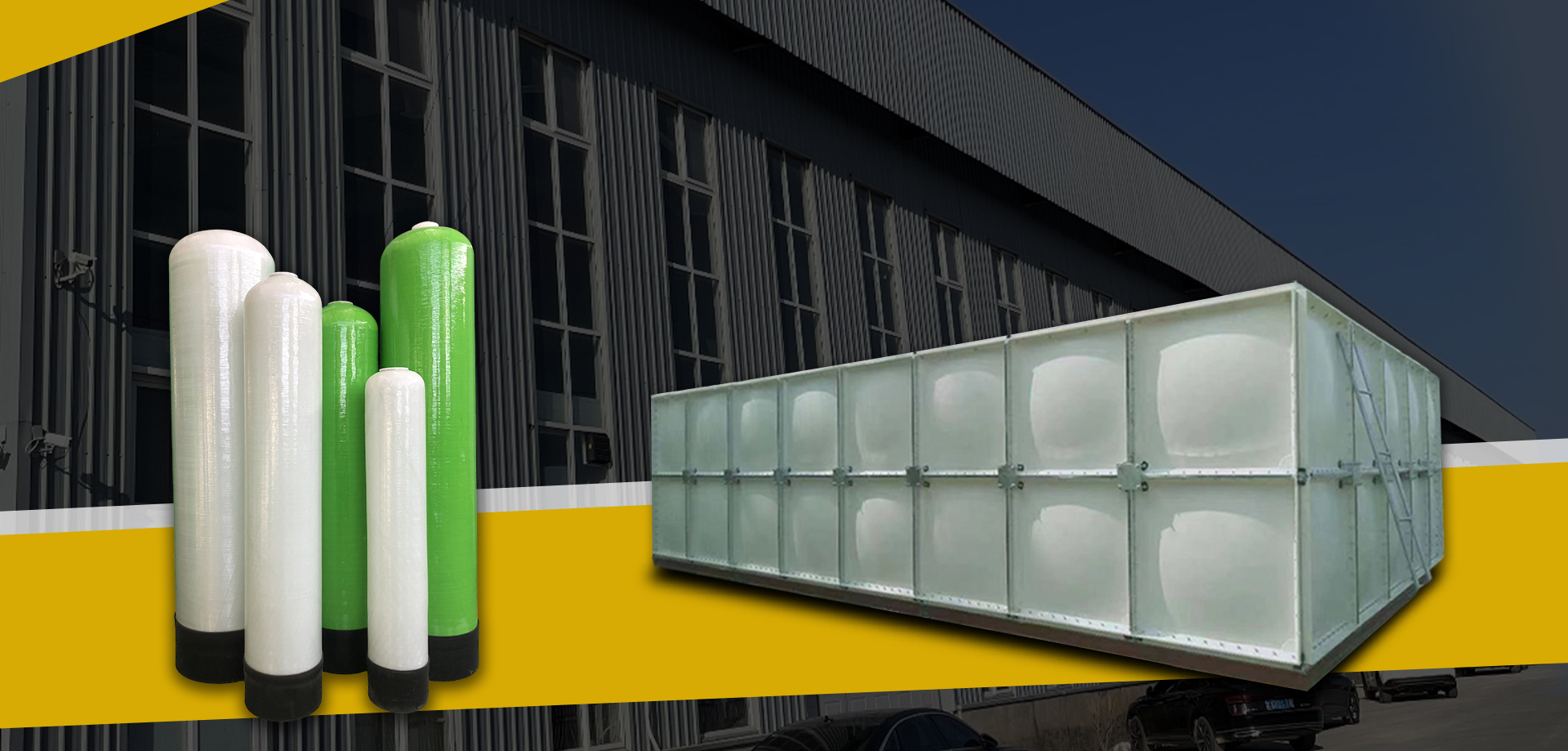loading...
- No. 9, Xingyuan South Street, Dongwaihuan Road, Zaoqiang County, Hengshui, Hebei, China
- admin@zjcomposites.com
- +86 15097380338
- Welcome to visit our website!
frp pressure vessel tank
The Role of FRP Pressure Vessels in Industry
FRP (Fiberglass Reinforced Plastic) pressure vessels have gained significant popularity in various industrial applications due to their unique properties that offer advantages over traditional materials such as steel and aluminum. These vessels are designed to withstand high pressures and contain liquids and gases safely while providing durability and resistance to corrosion.
Understanding FRP Pressure Vessels
FRP pressure vessels are composed of a polymer matrix, reinforced with fiberglass, allowing them to achieve remarkable strength-to-weight ratios. This is crucial in applications where weight is a limiting factor, such as in aerospace, chemical processing, and water treatment. The manufacturing of these vessels typically involves procedures like filament winding, which allows for precise control over the material's orientation and properties, contributing to the overall integrity of the vessel.
The basic construction of an FRP pressure vessel consists of an outer layer of resin and fiberglass, which is designed to resist environmental factors such as UV radiation, chemicals, and temperature fluctuations. The internal layer is crafted to hold the substance being contained, ensuring that it remains isolated from external elements. This makes FRP pressure vessels an excellent choice for industries that deal with aggressive chemicals, where steel vessels would corrode over time.
Advantages of FRP Pressure Vessels
1. Corrosion Resistance One of the standout features of FRP pressure vessels is their exceptional resistance to corrosion. Unlike traditional metal vessels, which can corrode when exposed to harsh chemicals, FRP can withstand a wide range of environmental conditions. This property significantly extends the lifespan of the vessel and reduces maintenance costs.
2. Lightweight The lightweight nature of FRP materials makes them easy to transport and handle during installation. This is particularly advantageous in large-scale projects where the weight of traditional vessels could pose logistical challenges.
3. Customizable FRP pressure vessels can be tailored to meet specific operational requirements. They can be designed in various shapes and sizes, depending on the requirements of the specific application. This flexibility allows engineers to optimize designs for efficiency and performance.
4. Thermal Insulation These vessels can provide better thermal insulation compared to metal alternatives. This characteristic is essential in processes where temperature control is crucial, such as in the storage of cryogenic fluids or high-temperature chemicals.
frp pressure vessel tank

5. Cost-Effectiveness Although the initial cost of manufacturing FRP vessels can be higher than that of metal vessels, the long-term savings through reduced maintenance, lower operational costs, and extended lifespan can make FRP pressure vessels a more economically sound choice over time.
Applications of FRP Pressure Vessels
FRP pressure vessels find applications across a diverse range of fields
- Chemical Processing Used for storing and transporting corrosive chemicals, FRP vessels can help ensure workplace safety while maintaining the integrity of the contained substances.
- Water Treatment In the water purification industry, FRP vessels are used in filtration, ion exchange, and reverse osmosis systems due to their ability to resist the corrosive effects of water and chemicals used in treatment processes.
- Oil and Gas The oil and gas industry utilizes FRP vessels for storing various fluids, including fuels and hydrocarbons. Their resistance to corrosion and temperature variations provides safe and efficient storage solutions.
- Aerospace In aerospace applications, weight is a critical consideration. FRP pressure vessels are often used in fuel tanks and other components where reducing weight is essential without sacrificing safety and structural integrity.
Conclusion
As industries continue to evolve and adapt to the challenges posed by modern applications, the role of FRP pressure vessels is becoming increasingly vital. Their unique combination of strength, lightweight construction, and corrosion resistance not only enhances safety and efficiency but also aligns with sustainable practices by reducing maintenance needs and improving longevity. Whether in chemical processing, water treatment, or aerospace applications, FRP pressure vessels represent a critical component in the safe and effective management of pressurized systems. As technology advances, we can anticipate further innovations in FRP materials and construction techniques, paving the way for even broader applications in the future.
-
Transform Your Spaces with FRP Grating SolutionsNewsNov.04,2024
-
The Versatility and Strength of FRP RodsNewsNov.04,2024
-
The Excellence of Fiberglass Water TanksNewsNov.04,2024
-
The Benefits of FRP Grating for Your ProjectsNewsNov.04,2024
-
Elevate Your Efficiency with FRP Pressure VesselsNewsNov.04,2024
-
Welcome to the World of FRP Pressure VesselsNewsOct.12,2024
-
Unveiling the Future of Filtration: Why FRP Filter Vessels are a Game ChangerNewsOct.12,2024
